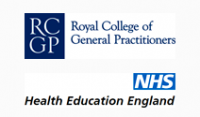Oral Hypoglycaemics course for GPs



This session provides an overview of oral hypoglycaemic agents, their indications, cautions and the clinical guidelines governing their use.
Learning Objectives
By the end of this session you will be able to:
- describe the differences between the types of oral hypoglycaemics available and their mechanisms of action
- explain the indications of the various oral hypoglycaemics (OHGs) and cautions around their use
- discuss the NICE guidance and be able to compare it to the American Diabetes Association and the European Association for the Study of Diabetes guidelines
- advise on medication use during intercurrent illness
Lifestyle interventions such as weight loss, smoking cessation and regular exercise can help to reduce hyperglycaemia and reduce cardiovascular risk and encouraged at every opportunity. Hypoglycaemic medications should be prescribed to augment lifestyle interventions, when these changes are not adequate to control blood-glucose alone.
Dr Bakhai graduated from University College London and completed her vocational training at Guys and St Thomas’ Vocational Training Scheme.
Her qualifications include nMRCGP, MRCP, a Diploma in Obstetrics and Gynaecology and a Diploma in Sexual and Reproductive Health. She completed a Darzi Fellowship with Leeds University Business School. Khyati sits on the Governing body of Tower Hamlets CCG and is a director at Greenlight@GP supporting education and training for practice-based pharmacists.
She is a GP Partner at Bromley by Bow Health Partnership in Tower Hamlets, which was awarded the BMJ ‘Primary care team of the year award 2019’. She has a special interest in education and training. Khyati is the co-founder of an innovative health education delivery projects co-produced with parents of children aged 0-5 (‘DIY Health’); Khyati has authored several e-learning modules and e- knowledge updates for the RCGP. Her most challenging role remains being a mother to two lovely girls who teach her new things every day.

- Communication Impairments Part 4: Autistic Spectru...
- Posted By eIntegrity Healthcare e-Learning
- Posted Date: 2024-12-23
- Location:Online
- This session is the last of four that looks at different speech, language and communication impairme...
- Communication Impairments Part 3: Cleft Palate, He...
- Posted By eIntegrity Healthcare e-Learning
- Posted Date: 2024-12-23
- Location:Online
- This session is the third of four which describe different speech, language and communication impair...
- Communication Impairments Part 2: Specific Speech ...
- Posted By eIntegrity Healthcare e-Learning
- Posted Date: 2024-12-23
- Location:Online
- This session is about speech sound disorder (SSD). It describes the characteristics associated with ...
- Communication Impairments Part 1: Late-talking Tod...
- Posted By eIntegrity Healthcare e-Learning
- Posted Date: 2024-12-23
- Location:Online
- This session is the first of four which describe different speech, language and communication impair...
- Typical Development Part 2: First Words and Early ...
- Posted By eIntegrity Healthcare e-Learning
- Posted Date: 2024-12-23
- Location:Online
- This session gives an overview of the main aspects of how language typically develops in children. I...







